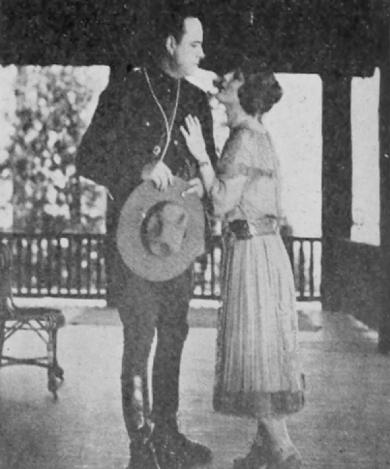Copyright & Fair Use
Frequently Asked Questions

Harry Revier (director), Life’s Greatest Question, 1921 (Exhibitors Herald )
It is an infringement of copyright to do, without permission from the copyright owner, any act that only the owner is entitled to do.
University of Toronto Libraries, Copyright Basics and FAQ
IMPORTANT NOTICE:·The following is a general Q/A format presentation of what many experts regard as a nuanced and complex legal subject matter area. In addition, it is one in which advice will vary depending on the specific facts involved in each question or matter. Seemingly slight factual variations can alter the analysis and outcome of a given question or scenario. Therefore, it is very important to consult with counsel before taking any action in this area, and to not rely exclusively on the information contained in this Q/A. Nothing contained on this site or its related links may be construed as legal advice from the OVPGC on a given matter. Members of the IU community should consult the OVPGC directly on specific legal issues or matters.·
Indiana University, Copyright & Fair Use Frequently Asked Questions
What can I reproduce from a copyrighted work without permission? (or: What Is Fair Use?)
Although you generally cannot put an entire copyrighted work on the Web without permission, you can make limited use of copyrighted material.
In most countries, people are allowed to make limited use of such works in their own writings, or copy the work to a limited extent, for purposes that include commentary, criticism, education, research, and news reporting. This right is known as “fair use” in the United States, and as “fair dealing” in many other countries.
Here’s a brief explanation of fair use in the United States, which I’ve largely lifted from a PDF form letter (FL 102) sent out by the US Copyright Office. (The original form letter, as a government publication, is in the public domain. The Copyright Office is not responsible for the changes I’ve made here.)
John Mark Ockerbloom, The Online Books Page Frequently Asked Questions
Isn’t fair use pretty vague? I need to have clear guidelines, not just for me, but for my staff.
The law codifying fair use was designed to be broad and flexible, and judges usually understand that. Fair use will apply differently to different users in different situations. That may seem frustrating, but it can also be liberating, especially for communities that have a code of best practices. It means that fair use law, as it evolves, may be responsive to a profession’s norms and conditions. The Code’s principles and limitations are grounded in the particular practices of the visual arts professions and values, and tailored to key practice contexts. So, although fair use determinations need to be made on a case-by-case basis, some cases come up all the time; decisions based on reason can be applied to the same kind of situation ever more quickly as you and your staff become comfortable with the process.
College Art Association, Code of Best Practices in Fair Use for the
Visual Arts > Frequently Asked Questions
What are the maximum criminal penalties for copyright infringement?
In the U.S., penalties for criminal copyright infringement can include fines up to $250,000 and/or imprisonment of up to five years. Other countries have territory-specific penalties.
Symantec, Anti-Piracy Frequently Asked Questions
treyf online 2022
![]()